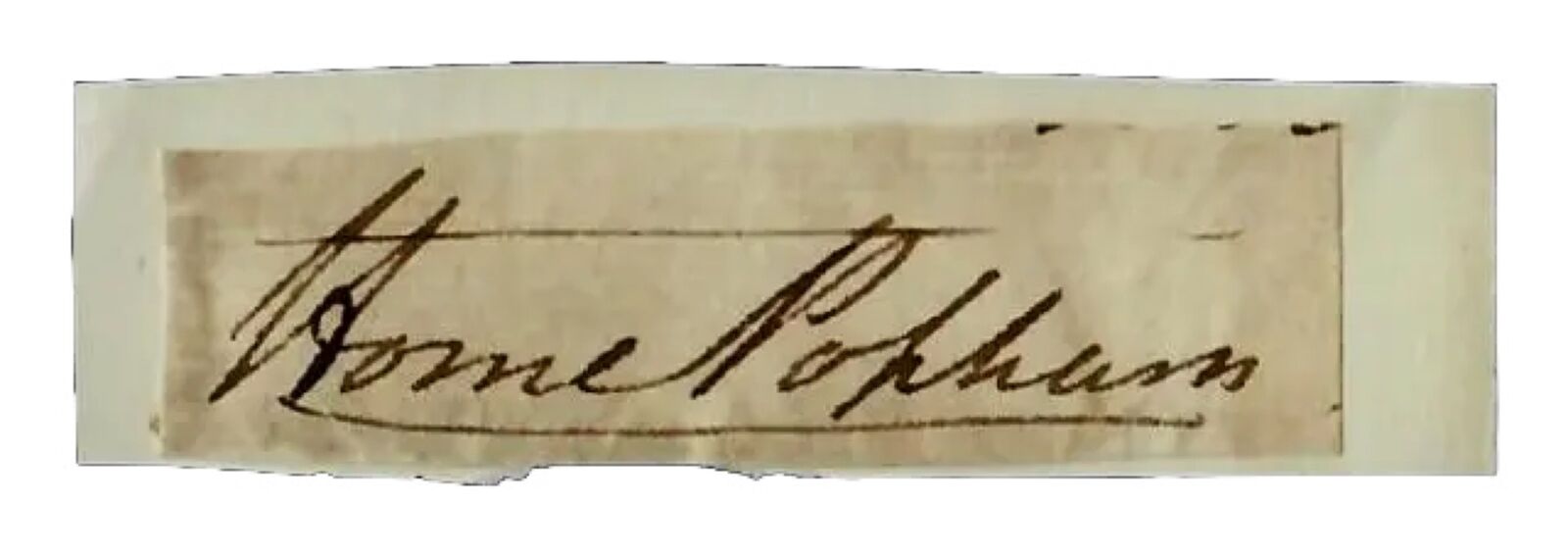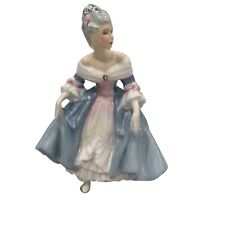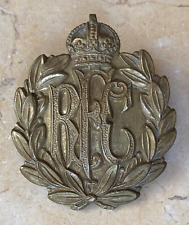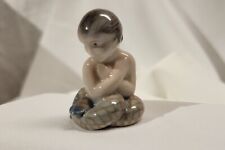When you click on links to various merchants on this site and make a purchase, this can result in this site earning a commission. Affiliate programs and affiliations include, but are not limited to, the eBay Partner Network.
Up for sale a RARE! "Royal Navy Commander" Home Popham Clipped Signature.
ES-5633E
Rear Admiral Sir
Home Riggs Popham, KCB, KCH (12 October 1762
– 20 September 1820), was a Royal Navy commander who saw service against the French
during the Revolutionary and Napoleonic Wars. He is remembered for his scientific
accomplishments, particularly the development of a signal code that was adopted
by the Royal Navy in 1803. Home Popham was born in Gibraltar on 12 October
1762, the fifteenth child of Joseph Popham, British consul at Tétouan in Morocco, and his first wife Mary, née Riggs. It is likely that
the child's first name was chosen to honour Gibraltar's former Governor William Home.
Mary Popham died an hour after Home was born, from complications associated
with the birth. Nine months later Joseph married Catherine Lamb, who became
responsible for raising Home and his siblings. The couple also had six more
children.
In 1769 Joseph Popham was forced to resign as consul after a personal
dispute with the Moroccan Emperor regarding piracy against English merchantmen.
The British Government subsequently blamed Joseph Popham for the disagreement,
with Gibraltar Governor Edward Cornwallis describing him as an "honest well
meaning man" who had met with "little success" and was
henceforth "an improper person to serve His Majesty [as consul]."
The Popham family returned to
England, settling first in Chichester and then Guernsey. Joseph sought further
diplomatic postings but was successful only in securing an annual government
pension of £200 which was insufficient to cover debts incurred during his
Moroccan consulship. The family was forced to rely on income earned by Home's
brothers, particularly Stephen Popham who was then a successful barrister. In
1772 Home was sent to Westminster School in
London, where he remained for three years. His father Joseph died in Guernsey
in 1774.
On 3 January 1776 Home was admitted to further study at Trinity College, Cambridge. His education may have been paid for by his
brother Stephen or by Captain Edward
Thompson, a family friend. There is no record of Home actually
residing in Cambridge or attending lectures. In April 1778 he abandoned his
studies and enlisted in the Royal Navy as an able seaman aboard Thompson's newly built frigate HMS Hyaena.
While this dispute was going on Popham had resumed his career as a naval
officer. He served with the army under the Duke of York in Flanders as "superintendent of Inland
Navigation" and won his confidence. The protection of the duke was
exercised with so much effect that Popham was promoted commander in 1794 and
post captain in 1795. He was then engaged for several years in co-operating in
a naval capacity with the troops of Great Britain and her allies.
His bills for the repair of his ship at Calcutta were the excuse for an attack on him and for
charging him with the amount. It was just the time of the general reform of the
dockyards, and there was much suspicion in the air. It was also the case
that Lord St.
Vincent did not like Popham, and that Benjamin Tucker (1762–1829), secretary to the admiralty,
who had been the admiral's secretary, was his creature and sycophant. However,
Popham was not the man to be snuffed out without an effort. He brought his case
before Parliament, and was able to prove that there had been, if not deliberate
dishonesty, at least the very grossest carelessness on the part of his
assailants.
In the spring of 1798 the Admiralty created the Sea Fencibles, a force of coastal militia, following a plan by
Popham. On 8 May 1798 Home Popham led an expedition to Ostend to
destroy the sluice gates of the Bruge canal. The expedition landed a contingent
of 1,300 British Army soldiers under the command of Major General Coote. The
troops burnt some ships in the harbour before blowing up locks and gates on the
canal. His force then surrounded had to surrender as adverse winds prevented
their re-embarkation. It
was during this period perhaps in captivity, before being returned home that
Popham began work on a standard signal instructions handbook for the Royal
Navy. Ship to ship communication was very haphazard: a fleet system that
protected vulnerable frigates on station was essential to save time and
material. The global character of the navy required linking to larger fleet
formations. During service on HMS Romney in the Battle of Copenhagen Popham
tested his telegraphic equipment. He acted as liaison officer to the Danish
Court off station from Elsinore. Popham was under the direction of Admiral
Archibald Dickson when he devised the two or three flag hoist, in which each
sign was a number, and each combination a different state of readiness. The
vocabulary was limited and totally nautical, apposite to a direct command. At
Copenhagen boats could be sent ashore, but were unnecessary using only flag
signals. Popham was deeply encouraged by Lord Spencer, 1st Lord of the
Admiralty who advised publication of the signal books. The new Signals were
immensely useful to Nelson at Trafalgar in developing navy tactics in secret.
Popham proved McArthur, his critic and rival, wrong; Popham's books were
printed several times after the battle.









